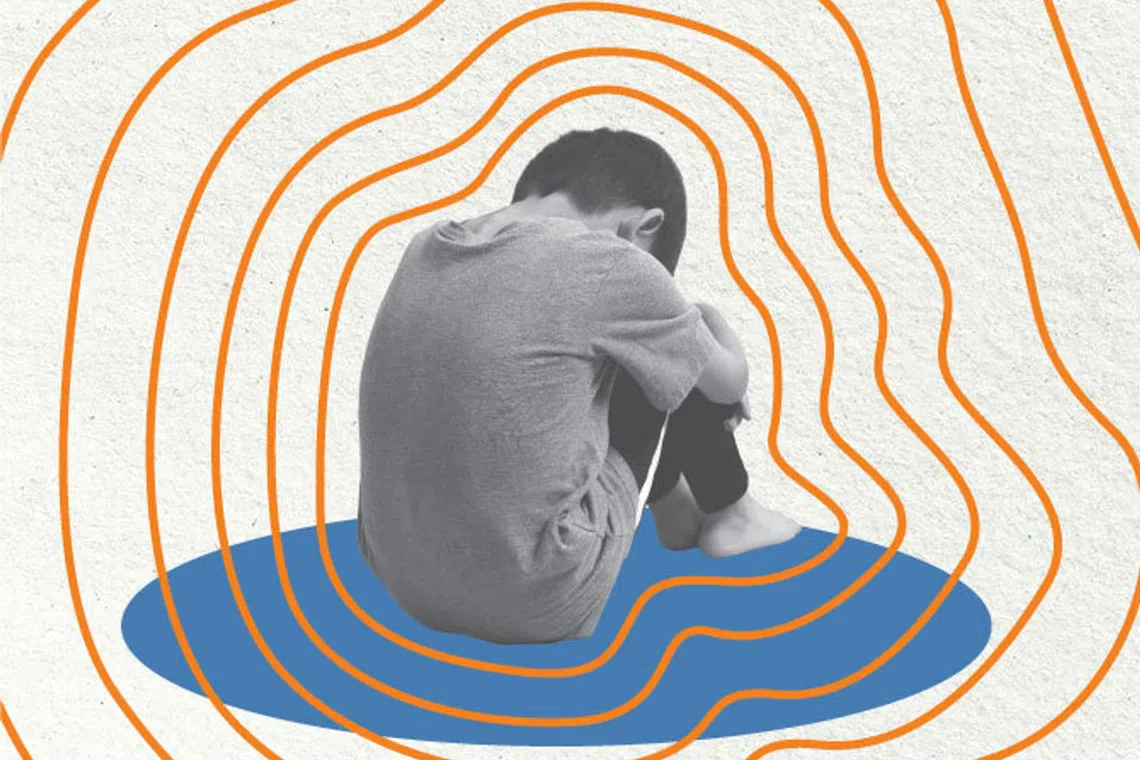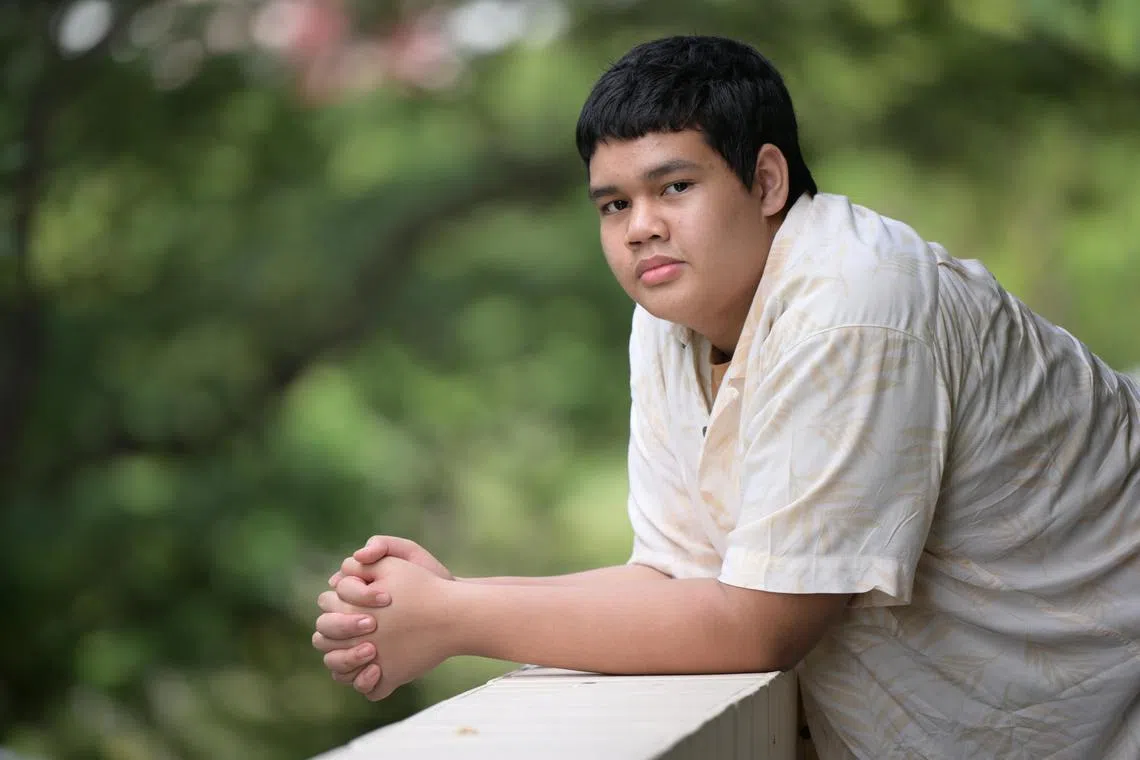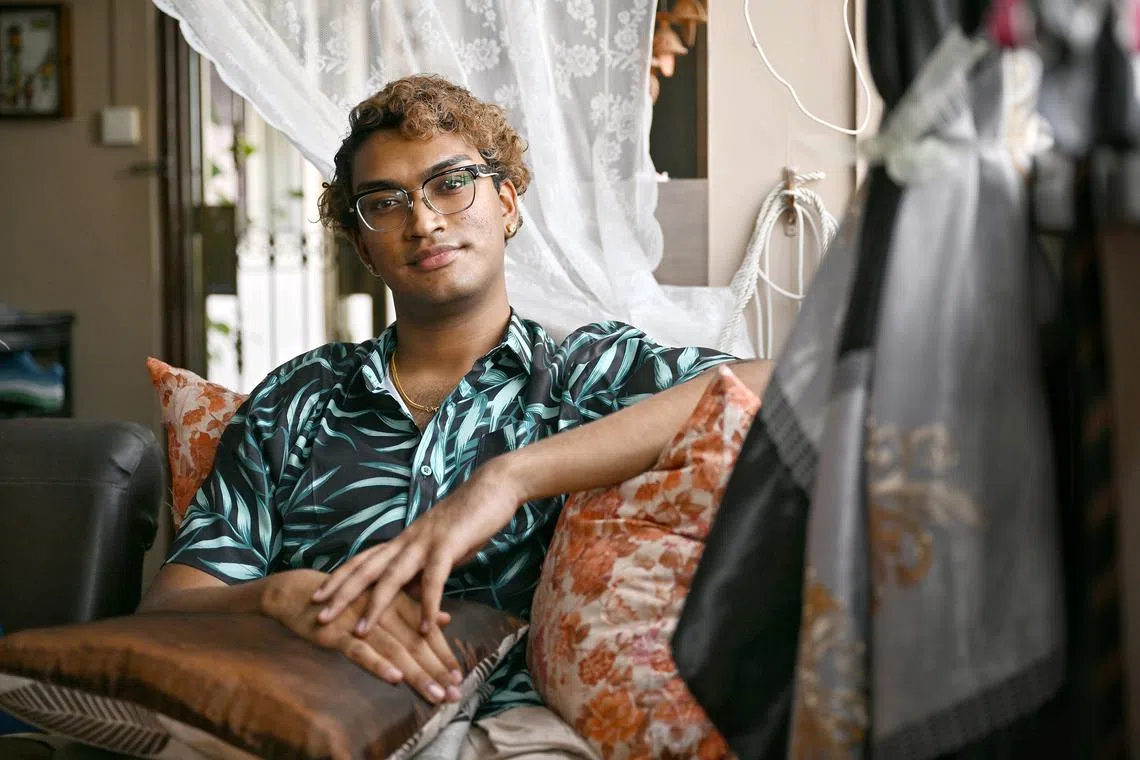The teen mental health crisis: How some S’pore youth found light in their darkness
Sign up now: Get ST's newsletters delivered to your inbox

Insight speaks to youth who have navigated tremendous turmoil - emotional, mental and even physical - to find out how they coped and pulled through to tell their stories.
PHOTO: ST ILLUSTRATION
Follow topic:
SINGAPORE - Our youth are in distress.
Around one in three young people here has experienced severe symptoms of depression, anxiety or stress, a nationwide survey reported in September.
Those who were cyber bullied, concerned about how they look, or used social media excessively were more susceptible to feeling this way, the survey by the Institute of Mental Health found.
Similar situations have been reported in the United States and other developed countries, where rates of depression, anxiety and suicide have risen among adolescents.
This decline in teenage mental health has been blamed largely on excessive screen time and social media, although other factors may have contributed to it, including a lack of unstructured play, an overly academic culture and parental stress.
But there is help and hope.
Insight speaks to youth who have navigated tremendous turmoil - emotional, mental and even physical - to find out how they coped and pulled through to tell their stories.
Into the darkness of the Internet and back again

14-year-old student Mohamed Zinedine Emad found himself neglecting his studies as his screen time increased.
ST PHOTO: NG SOR LUAN
Mohamed Zinedine Emad started making friends in virtual reality at the young age of 11.
After getting his first phone in Primary 4, he was excited at the thought of constantly staying in touch with people online through apps like Discord. Faceless people on the app soon turned into friends he would text-chat with daily.
His friends also invited him to join them to play some online games.
Zinedine said: “I figured that it was no harm to try so I just joined them. I didn’t think it would actually get me more hooked on the device.”
His daily screen time almost doubled from four to five hours in Primary 4, to between nine and 10 hours when he was in Primary 5 and 6.
As his screen time increased, he found himself neglecting his studies, which he no longer had time for.
He pushed himself to excel and ended up with suicidal thoughts

Mr Reshiivarma was diagnosed with severe anxiety and depression in mid-2020.
ST PHOTO: ARIFFIN JAMAR
In the kitchen of Mr Reshiivarma’s family home, there used to be a small space between the dining table and the washing machine that he would often retreat to after school.
Those dark days, beginning in late 2018, never seemed to end.
His mother, Madam Krishnaveni, would often find him hiding there – her once-cheerful son swaddled in a thickening fog of sadness.
The then 18-year-old student at the Institute of Technical Education (ITE) would say little, except to tell her from time to time: “I want to die, I want to die.”
His family could not comprehend his despair. It was only several months later that he revealed to his mother that he had been bullied since he was in secondary school and now at work, and was struggling to cope.
But for more than a year, he did not get help because neither he nor his parents knew how truly affected he was.
‘Anorexia was my best friend’: Why youth turn to eating disorders to cope

Ms Lee Yue-Er, 21, started her eating disorder when she was in Primary 5, due to challenging family circumstances.
ST PHOTO: SHINTARO TAY
Ms Lee Yue Er’s most striking childhood memory was that of her parents shouting and fighting while she sat on the floor crying.
As an only child, she had no one to turn to for help. She was in lower primary school then. A sense of abandonment and confusion plagued her childhood, said Ms Lee, now a 21-year-old nursing student, in an interview with The Straits Times.
At the age of 11, her emotional turmoil churned into a more destructive force. A self-professed “shy kid”, she faced friendship problems in school.
She began starving herself because food was the only thing she felt she could control.
“Hunger was a source of comfort. When my weight dropped, I felt satisfaction,” said Ms Lee, who was diagnosed with anorexia nervosa when she was 14.
The mental health condition is characterised by an abnormally low body weight and an intense fear of gaining weight. Another common eating disorder is bulimia nervosa, which involves binge eating, then purging.
Helplines
Mental well-being
Institute of Mental Health’s Mental Health Helpline: 6389-2222 (24 hours)
Samaritans of Singapore: 1-767 (24 hours) / 9151-1767 (24-hour CareText via WhatsApp)
Singapore Association for Mental Health: 1800-283-7019
Silver Ribbon Singapore: 6386-1928
Tinkle Friend: 1800-274-4788
Chat, Centre of Excellence for Youth Mental Health: 6493-6500/1
Women’s Helpline (Aware): 1800-777-5555 (weekdays, 10am to 6pm)
Counselling
Touchline (Counselling): 1800-377-2252
Touch Care Line (for caregivers): 6804-6555
Care Corner Counselling Centre: 6353-1180
Counselling and Care Centre: 6536-6366
We Care Community Services: 3165-8017
Online resources
carey.carecorner.org.sg
(for those aged 13 to 25)limitless.sg/talk
(for those aged 12 to 25)

